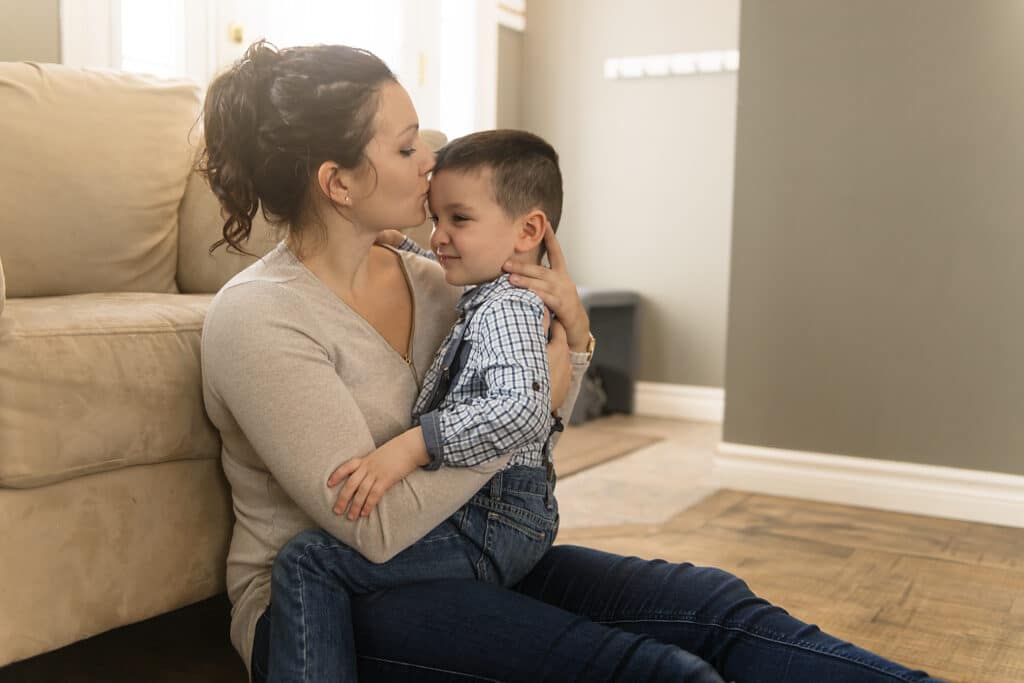When a couple divorces or establishes paternity, no party is a preferred parent. In other words, there is no presumption favoring either parent.1 Under the law, a father is just as likely to obtain physical custody as a mother—and fathers do obtain sole physical or primary custody in Indiana and throughout the United States. However, the parents and or children’s situations and circumstances change over time and a parent may seek to modify custody. This blog works through the basics of what you need to know about physical custody modification.
To move to modify custody, a parent must be able to present evidence that modification of custody is in the child’s best interest and there has been a change in the statutory factors2 the court must consider in determining primary custody in the first place, which include:
- The age and sex of the child.
- The wishes of the child’s parent or parents.
- The wishes of the child with more consideration given to the child’s wishes if the child is at least fourteen (14) years of age.
- The interaction and interrelationship of the child with his or her parents, siblings, and any other person who may significantly affect the child’s best interests.
- The child’s adjustment to the child’s home, school, and community.
- The mental and physical health of all individuals involved.
- Evidence of a pattern of domestic or family violence.
- Evidence that the child has been cared for by a de facto custodian.
- A designation in a power of attorney of the child’s parent or a person who is a de facto custodian.3
This noted, the focus is on the child, not the parents. What does this mean? By way of example, assume a biological parent was addicted to drugs and this was the reason the judge initially awarded the other parent custody. If the drug addicted parent gets his or her life together and wants custody, barring some other changed facts, this has little to nothing to do with the child, except he or she may get to spend more quality parenting time with the children. The focus is on the children.
While it is true custodial parent may lose custody because of her or her acts against the other—particularly those impacting the child’s relationship with the non-custodial parent—lack of cooperation or isolated acts of misconduct by a custodial parent cannot serve as the basis for the modification of child custody.4 Where random acts become more and support a custody modification is a blurry line that skilled domestic counsel needs to assess if you seek a custody modification of the child. This is because stability and permanency are given a great deal of weight and consideration by trial court judges.
Notwithstanding, sometimes a substantial change can be a significant event, such as an arrest and conviction, drug overdose and the like, as this directly puts the child in harm’s way and is one of the statutory factors the court must consider in modifying custody (this is the statutory mental and physical health of all individuals involved consideration). Unlike random acts of misconduct, which may accumulate to support a substantial change in circumstance (and normally takes an attorney to navigate), any act by the custodial parent that put’s the child’s physical or mental safety at risk is a basis to support a substantial change and perhaps lead not only to a modification of physical custody, but supervised visits on modification.5
Some litigants believe all of the statutory factors must be considered and noted by the trial court judge in modifying custody. A challenge to a custody modification will be unsuccessful on appeal if the trial court does not analyze and/or mention each statutory factor in its modification order. More importantly, the trial court is not limited to the statutory factors when it considers a modification case. Instead, it can receive any evidence that impacts the children’s best interests and relates to any change in circumstance enumerated in the statute or otherwise, such as remarriage, a new child being born into one of the former parent’s lives. However, the evidence must impact the children’s best interests or it is not relevant. This is why a parent overcoming drug addiction alone has little to do with that parent obtaining custody.
Although rarely mentioned the level of evidence to support a substantial change in circumstance is a preponderance of the evidence (more or less 51/49 percent).6 However, where third parties are involved who seek custody, they must prove they were de facto custodians to seek custody. This showing must be made by clear and convincing evidence, a significantly higher burden of proof. Thus, it takes skilled counsel to weave together the facts and law and show the burden is met to prevail in a custody modification. Effectively you must show a major event or an accumulation of evidence (such as a child declining in school, being tardy, etcetera) that shows a substantial change in circumstances and it is in the child’s best interests to have a modification.
This blog post on what you need to know about custody modification is written by attorneys at Ciyou & Dixon, P.C. who handle child custody litigation throughout the state. This blog is not intended to be legal advice or solicitation for services. It is to assist readers in being a more engaged citizen in the legal world and help those in custody litigation understand the showings that must be made in a custody modification case to help him/her help counsel gather and admit evidence to show a substantial change (or defend against same). Thus, it is an advertisement.
- Indiana Code section 31-17-2-8,
- Indiana Code section 31-17-2-21.
- Indiana Code section 31-18-2-8.
- Wallin v. Wallin, 668 N.E.2d 259, 261 (Ind.Ct.App.1996).
- Indiana Code section 31-17-2-8.3.
- This is a fairly low burden of proof compared to a criminal conviction where the fact-finder must prove each element of the crime “beyond a reasonable doubt”.








